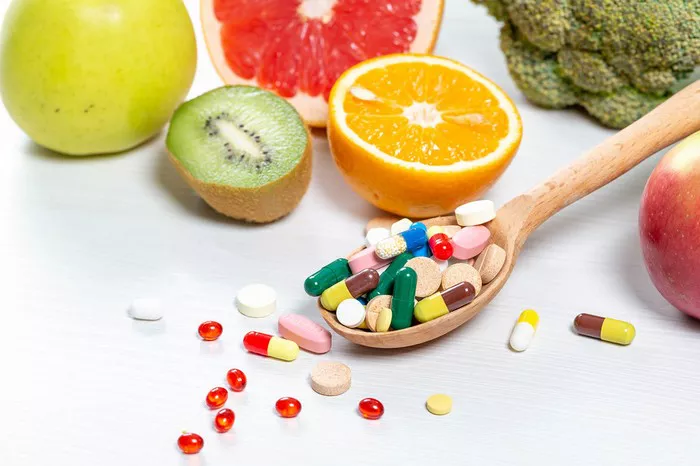Hair is not just a fashion statement; it’s a reflection of overall health and vitality. Whether long and lustrous or short and sleek, healthy hair enhances our appearance and boosts our confidence. However, achieving and maintaining healthy hair requires more than just good grooming habits—it also depends on proper nutrition. In this article, we delve into the role of vitamins in promoting hair growth and vitality, exploring which nutrients are essential for healthy locks and how they can be incorporated into a balanced diet.
The Science of Hair Growth
Hair growth is a complex process that occurs in cycles, with each hair follicle going through stages of growth, rest, and shedding. The rate of hair growth and the quality of hair strands are influenced by various factors, including genetics, age, hormones, and nutrition. While genetics play a significant role in determining hair texture and density, nutrition plays a crucial role in supporting the health of hair follicles and promoting optimal growth. Essential vitamins and nutrients provide the building blocks for healthy hair, nourishing the scalp and hair follicles from within.
Essential Vitamins for Hair Growth: Exploring Key Nutrients
Vitamin A
Vitamin A plays a vital role in promoting healthy hair growth by supporting the production of sebum, an oily substance that moisturizes the scalp and keeps hair follicles healthy. Additionally, vitamin A helps regulate cell turnover in the scalp, preventing the buildup of dead skin cells that can clog hair follicles and inhibit growth. Foods rich in vitamin A include carrots, sweet potatoes, spinach, kale, and liver.
B Vitamins
The B vitamins, including biotin (B7), niacin (B3), and pantothenic acid (B5), are essential for maintaining healthy hair growth and preventing hair loss. Biotin, in particular, is often referred to as the “hair vitamin” due to its role in supporting the production of keratin, a protein that forms the structure of hair strands. Niacin and pantothenic acid help improve circulation to the scalp, ensuring that hair follicles receive an adequate supply of oxygen and nutrients. Foods rich in B vitamins include whole grains, eggs, nuts, seeds, legumes, and leafy greens.
Vitamin C
Vitamin C is a powerful antioxidant that plays a key role in collagen synthesis, a process essential for maintaining the strength and elasticity of hair strands. Collagen helps support the structure of the hair shaft and promotes healthy hair growth from the root to the tip. Additionally, vitamin C helps protect hair follicles from oxidative stress and damage caused by environmental factors such as pollution and UV radiation. Foods rich in vitamin C include citrus fruits, berries, kiwi, bell peppers, and broccoli.
Supplements for Hair Growth: Navigating the Options
Biotin Supplements
Biotin supplements are one of the most popular options for promoting hair growth and improving the overall health of hair, skin, and nails. Biotin is a water-soluble vitamin that plays a crucial role in the metabolism of fats, proteins, and carbohydrates, as well as in the synthesis of keratin. While biotin supplements are generally safe and well-tolerated, it’s essential to consult with a healthcare professional before starting any new supplement regimen, as excessive intake of biotin can lead to adverse effects.
Multivitamin Formulations
Multivitamin formulations designed specifically for hair, skin, and nail health often contain a combination of vitamins, minerals, and other nutrients believed to support optimal growth and vitality. These formulations may include biotin, vitamin C, vitamin E, zinc, and other key nutrients known to promote healthy hair growth. While multivitamin supplements can be convenient and easy to use, it’s essential to choose a reputable brand and follow the recommended dosage instructions to avoid potential side effects.
Collagen Supplements
Collagen supplements have gained popularity in recent years for their purported benefits for skin, hair, and joint health. Collagen is the most abundant protein in the body and plays a crucial role in maintaining the strength and integrity of hair strands. While collagen supplements may help support healthy hair growth by providing the building blocks for keratin synthesis, more research is needed to determine their effectiveness specifically for hair growth. As with any supplement, it’s important to choose a high-quality product from a reputable manufacturer and consult with a healthcare professional before starting a new regimen.
Incorporating Hair-Growth Vitamins into Your Diet: Practical Tips
Eat a Balanced Diet
The best way to ensure you’re getting all the vitamins and nutrients your hair needs is to eat a balanced diet rich in whole foods. Include a variety of fruits, vegetables, whole grains, lean proteins, and healthy fats in your meals to provide a diverse array of nutrients that support hair health. Aim for a rainbow of colors on your plate to maximize the nutritional benefits of your diet and promote overall well-being.
Focus on Nutrient-Dense Foods
Nutrient-dense foods are those that provide a high concentration of vitamins, minerals, and other essential nutrients relative to their calorie content. Incorporating nutrient-dense foods such as leafy greens, berries, nuts, seeds, and fatty fish into your diet can help ensure you’re meeting your body’s needs for hair-growth vitamins and promoting optimal hair health from the inside out.
Stay Hydrated
Proper hydration is essential for maintaining healthy hair and scalp. Drinking an adequate amount of water each day helps keep the scalp moisturized and promotes circulation to the hair follicles, ensuring they receive the nutrients they need to support healthy growth. Aim to drink at least eight glasses of water per day, and hydrate with hydrating foods such as fruits, vegetables, and herbal teas.
Conclusion: Nourishing Your Hair from Within
While genetics play a significant role in determining hair texture and density, proper nutrition can help support healthy hair growth and vitality. Essential vitamins such as vitamin A, B vitamins, and vitamin C provide the building blocks for strong, resilient hair strands, while supplements such as biotin and collagen may offer additional support. By incorporating nutrient-rich foods into your diet, staying hydrated, and consulting with a healthcare professional about potential supplements, you can nourish your hair from within and achieve the luscious locks you’ve always dreamed of. Remember, healthy hair starts with a healthy body, so prioritize nutrition and self-care to unlock the secrets to radiant, vibrant hair.
[inline_related_posts title=”You Might Be Interested In” title_align=”left” style=”list” number=”6″ align=”none” ids=”6550,6547,6495″ by=”categories” orderby=”rand” order=”DESC” hide_thumb=”no” thumb_right=”no” views=”no” date=”yes” grid_columns=”2″ post_type=”” tax=””]
































